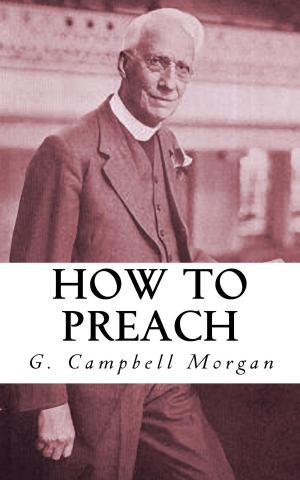The Christian Attitude Toward War
Nonfiction, Religion & Spirituality, Christianity, Christian Literature| Author: | Loraine Boettner | ISBN: | 1230001943504 |
| Publisher: | CrossReach Publications | Publication: | September 29, 2017 |
| Imprint: | Language: | English |
| Author: | Loraine Boettner |
| ISBN: | 1230001943504 |
| Publisher: | CrossReach Publications |
| Publication: | September 29, 2017 |
| Imprint: | |
| Language: | English |
To the people of our day has been given the privilege of living during some of the most momentous crises in the history of the world. Within the lifetime of one generation our nation has been engaged in two world wars and two smaller wars, the Korean and the Vietnam Wars, with their attendant large-scale destruction of life and property. Many people are genuinely puzzled as to the meaning of war and as to what the attitude of the Christian toward it should be. Because of this lack of understanding, and because much of the religious and political freedom that we enjoy was won through wars sanctioned by the church, the discussion of the whole war question is of primary importance.
Sometimes we hear it said that all war is wrong—wrong for the defenders as well as for the aggressors—and that even when waged with the sincere purpose of restraining evil, it tends to produce greater evils than those against which it is directed. Those propositions, we submit, simply are not true. We hold that there is such a thing as a just war—just on the part of those who defend their lives and their homes against unprovoked aggression, but sinful on the part of those who make the attack. To cite only a few instances: If the people of Europe had not resisted the Mohammedan invasions, Europe would have been conquered and, humanly speaking, Christianity would have been stamped out. If at the time of the Reformation the Protestants had not resisted the Roman Catholic persecutions, crimes such as were practiced so freely in the Spanish and Italian Inquisitions would have become common over all of Europe, and Protestantism would have been destroyed. If the American colonists had not fought for their rights, this country would not have gained its independence. In international affairs, as in individual affairs, it often happens that there is an innocent party and a guilty party, although in most cases the guilt is not altogether on one side. And of course there have been many senseless, stupid, inexcusable wars in which neither side was at all concerned about righteousness.
We want to be neither pacifists nor militarists. We would define a pacifist as one who will not sanction or take part in any war, no matter what the occasion or the apparent justification—one who is for peace at any price. And we would define a militarist as one who favors heavy military armaments, primarily for purposes of aggression against other nations. We expect to show that the position that should be taken by anyone who is a true Christian and also a loyal citizen lies somewhere between those two extremes.
It should not be necessary to say that we hate war as do all right-minded people. We hope that our country may never have to engage in another. We desire peace, but we realize there are some things worse than war. We desire peace, but not the kind that is found in the slave camp or the cemetery. It is true that Christ came as the Prince of Peace, and that His followers should strive to promote peace by all lawful means. And for that reason it may seem strange that any professed Christian should enter a protest against the modern pacifist movement. Anyone who does speak against it doubtless will be misunderstood by some. We believe, however, that that movement is dangerous, and that it has no necessary or legitimate part in the evangelical program.
Since the conclusions we reach concerning these problems affect so vitally our attitude toward present-day national and international happenings, and since some people are inclined to take the view that war is always and everywhere wrong, it is important that we have a clear understanding as to what the Christian attitude toward war should be.
To the people of our day has been given the privilege of living during some of the most momentous crises in the history of the world. Within the lifetime of one generation our nation has been engaged in two world wars and two smaller wars, the Korean and the Vietnam Wars, with their attendant large-scale destruction of life and property. Many people are genuinely puzzled as to the meaning of war and as to what the attitude of the Christian toward it should be. Because of this lack of understanding, and because much of the religious and political freedom that we enjoy was won through wars sanctioned by the church, the discussion of the whole war question is of primary importance.
Sometimes we hear it said that all war is wrong—wrong for the defenders as well as for the aggressors—and that even when waged with the sincere purpose of restraining evil, it tends to produce greater evils than those against which it is directed. Those propositions, we submit, simply are not true. We hold that there is such a thing as a just war—just on the part of those who defend their lives and their homes against unprovoked aggression, but sinful on the part of those who make the attack. To cite only a few instances: If the people of Europe had not resisted the Mohammedan invasions, Europe would have been conquered and, humanly speaking, Christianity would have been stamped out. If at the time of the Reformation the Protestants had not resisted the Roman Catholic persecutions, crimes such as were practiced so freely in the Spanish and Italian Inquisitions would have become common over all of Europe, and Protestantism would have been destroyed. If the American colonists had not fought for their rights, this country would not have gained its independence. In international affairs, as in individual affairs, it often happens that there is an innocent party and a guilty party, although in most cases the guilt is not altogether on one side. And of course there have been many senseless, stupid, inexcusable wars in which neither side was at all concerned about righteousness.
We want to be neither pacifists nor militarists. We would define a pacifist as one who will not sanction or take part in any war, no matter what the occasion or the apparent justification—one who is for peace at any price. And we would define a militarist as one who favors heavy military armaments, primarily for purposes of aggression against other nations. We expect to show that the position that should be taken by anyone who is a true Christian and also a loyal citizen lies somewhere between those two extremes.
It should not be necessary to say that we hate war as do all right-minded people. We hope that our country may never have to engage in another. We desire peace, but we realize there are some things worse than war. We desire peace, but not the kind that is found in the slave camp or the cemetery. It is true that Christ came as the Prince of Peace, and that His followers should strive to promote peace by all lawful means. And for that reason it may seem strange that any professed Christian should enter a protest against the modern pacifist movement. Anyone who does speak against it doubtless will be misunderstood by some. We believe, however, that that movement is dangerous, and that it has no necessary or legitimate part in the evangelical program.
Since the conclusions we reach concerning these problems affect so vitally our attitude toward present-day national and international happenings, and since some people are inclined to take the view that war is always and everywhere wrong, it is important that we have a clear understanding as to what the Christian attitude toward war should be.















